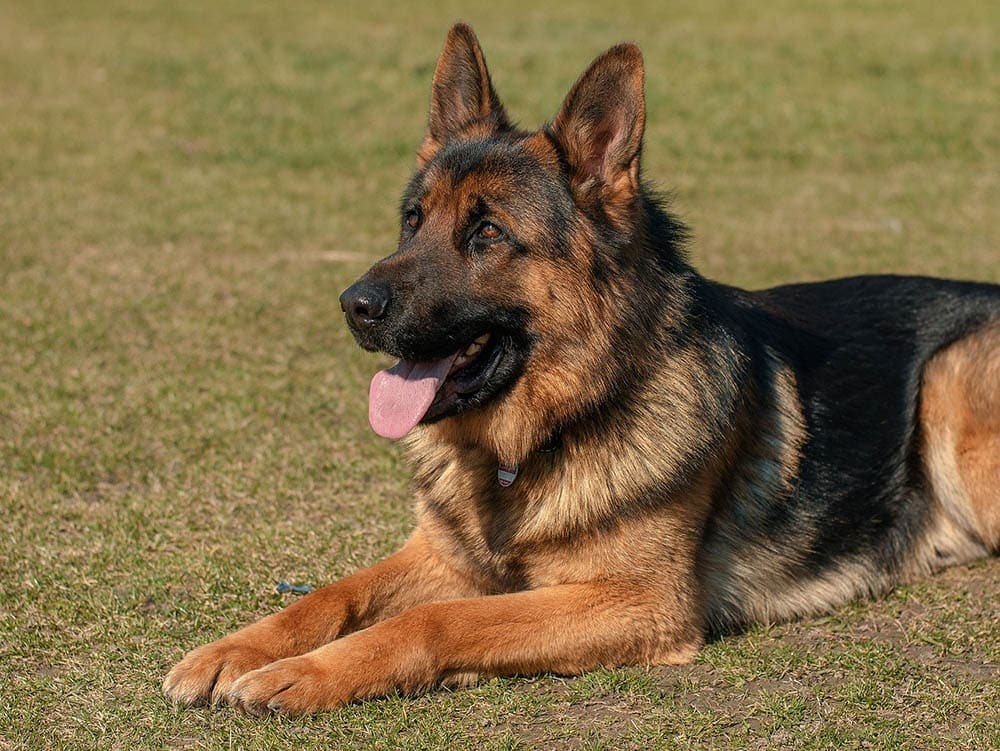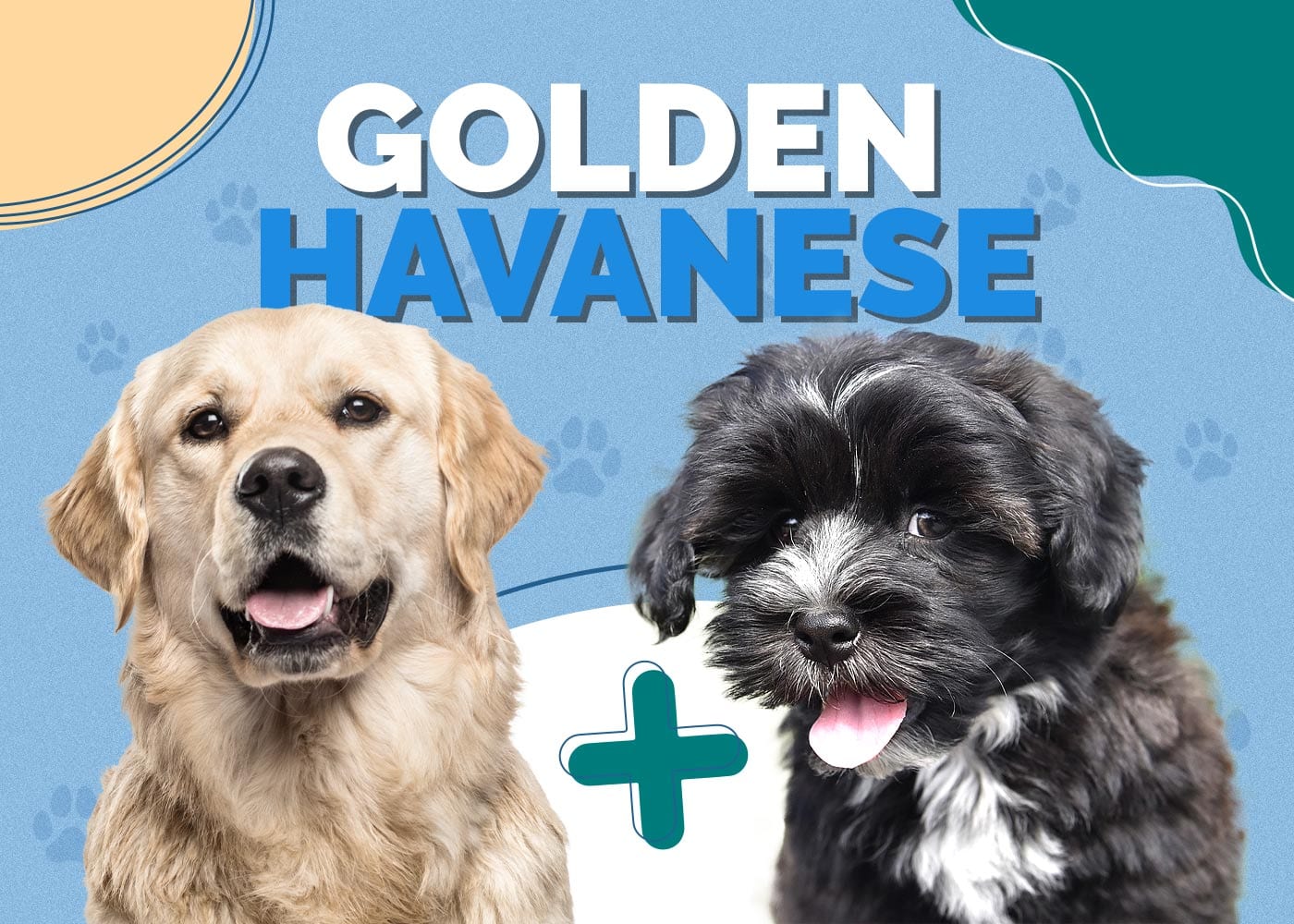Why Does My Puppy Fart So Much? 10 Vet-Reviewed Reasons
Updated on

We’ve all been there—you’re sitting in your living room with a guest and your dog lets out a big, stinky fart. We all know that passing gas is just a fact of life for just about anything with a digestive tract, but it can be quite unpleasant, not to mention embarrassing, to deal with the outcome of passing gas. Dogs are notorious farters, and some breeds are often considered to be gassier dogs, like English Bulldogs and Pugs. Should you be concerned if your puppy is farting excessively, though? What are the reasons this is happening?
The 10 Reasons Your Puppy Farts So Much
1. Diet
The top reason that dogs have gas is difficulty digesting their diet. There are some foods that are associated with producing more gas, like legumes, and you’ve likely heard about “Beans, beans, the magical fruit…” Excess gas can indicate that your puppy is having trouble digesting their food or that the ingredients in the food are producing excessive amounts of methane as they break down.
If your puppy just recently switched to a new diet, there may be an adjustment period where their gassiness is increased. If your puppy is excessively gassy for an extended period long after they’ve adjusted to their food, then you may need to consider a higher quality diet or food for sensitive stomachs.
2. Dairy
Dogs lack the appropriate enzymes in their digestive system to digest dairy properly once they are weaned. Much like lactose intolerant people, dogs may end up with digestive upset if they are fed dairy. For some dogs, a piece of cheese here and there isn’t going to be an issue, but some dogs may be more sensitive to dairy than others, leading to excessive gassiness, even with the smallest amount of dairy.
Generally, it’s recommended to skip the dairy for dogs and puppies anyway. Dairy is high in fat and calories, and since dogs can’t properly digest it, it has little to no benefit for them. When it comes to your puppy, skip the dairy and go for more appropriate treats.

3. High Fat Foods
Like with legumes and dairy, high-fat foods can lead to excessive farting for dogs and puppies. Foods that are high in fat can be difficult for the digestive tract to process, leading to stomach upset. This doesn’t just have to be food items like sharing a piece of fried chicken with your dog. Fatty foods like eggs, bacon, chips, sausage, and nuts can all cause digestive problems for your dog. Because fatty foods can also lead to a slew of medical problems, including obesity and pancreatitis, it’s recommended to skip the fatty foods, especially those that are highly processed.
4. Inappropriate Foods
Anyone who’s ever caught their dog with its head in the litter box or eating a pile of dirt in the backyard knows that some dogs will eat anything. While sometimes this can be funny or annoying, it can also be dangerous for your puppy.
Spoiled food, fermented food, and even non-food items can cause major digestive problems for your pup, leading to gas. Oftentimes, these things will also lead to nausea, vomiting, diarrhea, and abdominal pain. In some cases, even things like food poisoning can be a concern.
Keep food waste and non-food items that your puppy seems particularly fond of out of reach at all times. Keep in mind that some items, like bones, toys, and rocks, can lead to blockages in the digestive system, leading to a potentially emergent situation.
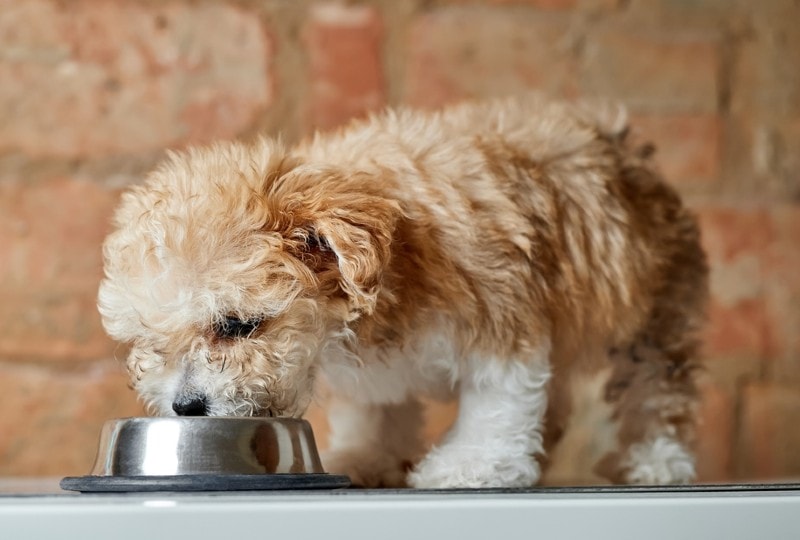
5. Eating Quickly
Have you ever eaten a meal really quickly, only to end up feeling uncomfortably full because you swallowed a lot of air while you were gulping your food down? Imagine eating all of your meals that way! Some dogs eat very quickly, which can lead to air in the digestive tract. This swallowed air has to go somewhere, so your dog will either belch or fart it out.
Brachycephalic, or flat-faced, breeds are especially prone to swallowing air when they eat simply due to their anatomy. Slow feeder bowls, scatter feeding, and puzzle feeders can all help slow your dog down and reduce the amount of air they swallow when they eat.
6. Obesity
While very few puppies are obese, it can happen, especially if your puppy eats lots of high-calorie, inappropriate foods and treats. Obese dogs fart more than dogs that have a healthy body weight. Things like swallowing air when eating, and pressure on the digestive organs from excess body weight can lead to air in the digestive tract, causing gas.
For multiple reasons, including all aspects of their physical health, you should keep your puppy at a healthy weight, even as they age. If you’re not sure what a healthy weight for your dog is, talk to your vet for guidance.
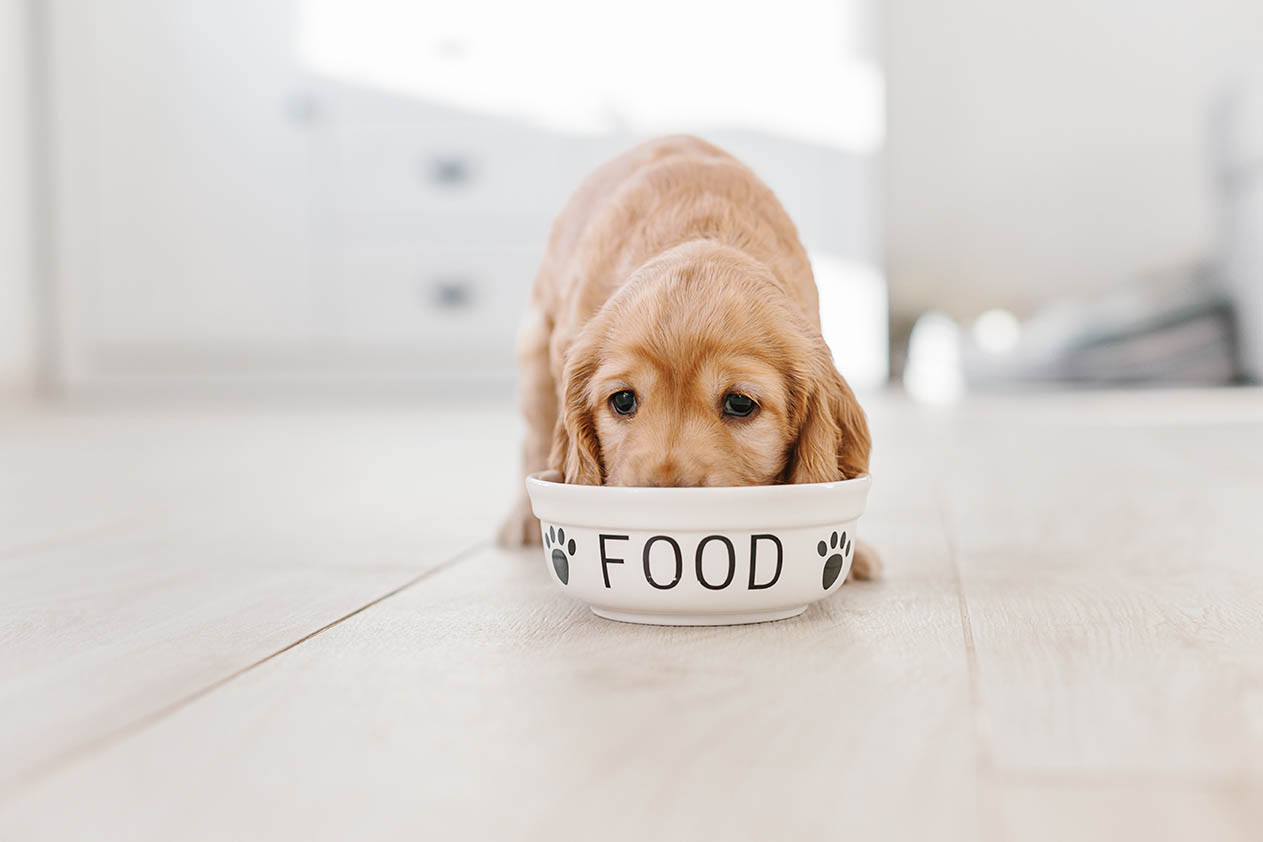
7. Sedentariness
Much like obesity, lack of exercise and activity can lead to gas. The less active a dog is, the less active their digestive tract is. Sedentariness leads to slower digestion and an increased risk of gas buildup during digestion.
The good news is that most puppies aren’t sedentary simply by their nature, but if your puppy is a little older and comfortable being a couch potato, make sure to engage them in physical activity every day. Puppies that have been chronically ill may also be sedentary, but if this is the case with your puppy, make sure to talk to your vet before beginning a physical activity regimen for them.
8. Food Intolerance
Some foods just don’t hit the digestive tract quite right for some people, and this is also true for dogs. Food allergies and intolerances can lead to digestive trouble and excessive gas in dogs and puppies. Generally, puppies aren’t particularly prone to food allergies or intolerances, but these can develop as they age.
If a food intolerance or allergy is severe, your vet will likely recommend a food trial which requires extreme compliance while you try to sort through what could be causing your dog’s excessive gas and digestive upset.
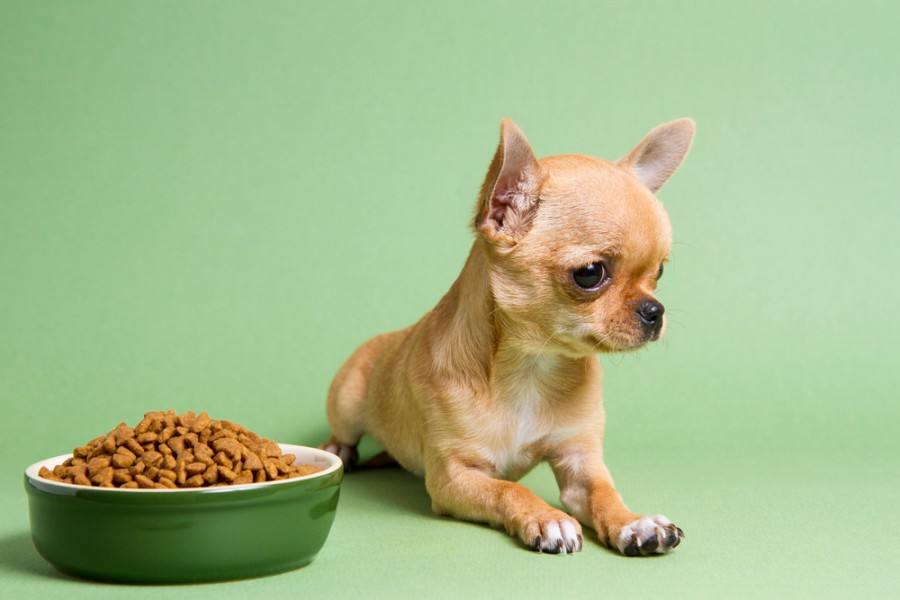
9. Malassimilation
Malassimilation refers to malabsorption or improper digestion. This condition can be due to your dog’s inability to digest certain ingredients, like food intolerances or the presence of dairy, but malassimilation can also indicate that there is a problem with your dog.
Malassimilation can be caused by physical deformities, enzyme deficiencies, immune-mediated diseases, and multiple other things. Malassimilation may be accompanied by diarrhea or excessive farting that occurs shortly after eating. If this is the case, your puppy needs to see a vet as soon as possible. Malassimilation means your puppy is not properly absorbing the nutrients in the food they are eating, which can lead to serious nutritional deficiencies.
10. Digestive Tract Disorders
Digestive tract disorders can be very serious for your dog. Although uncommon in puppies, there are a variety of conditions that can occur, which may lead to excessive gassiness. Conditions can be acute and chronic and can include conditions like pancreatitis, cancer, lymphangiectasia (a problem with intestinal lymph vessels), inflammatory bowel disease, and even damage from the presence or previous presence of parasites in the digestive tract.
In most cases, these conditions are accompanied by other symptoms, including lethargy, inappetence, abdominal pain, vomiting, diarrhea, and general malaise. If your puppy is exhibiting any of these symptoms, they should be seen by a veterinarian as soon as possible.

Conclusion
Farting can be annoying to deal with, but the good news is that most cases are benign. In some cases, a simple change of food or a slow feeder bowl can make all the difference in the amount of gas your dog has. In more severe cases, your vet may need to be involved to ensure the health and well-being of your puppy. And in some cases, you may own a breed of dog that’s going to be gassy no matter what you do, but at least you’ll always have someone else to blame!
Featured Image Credit: UfaBizPhoto, Shutterstock




